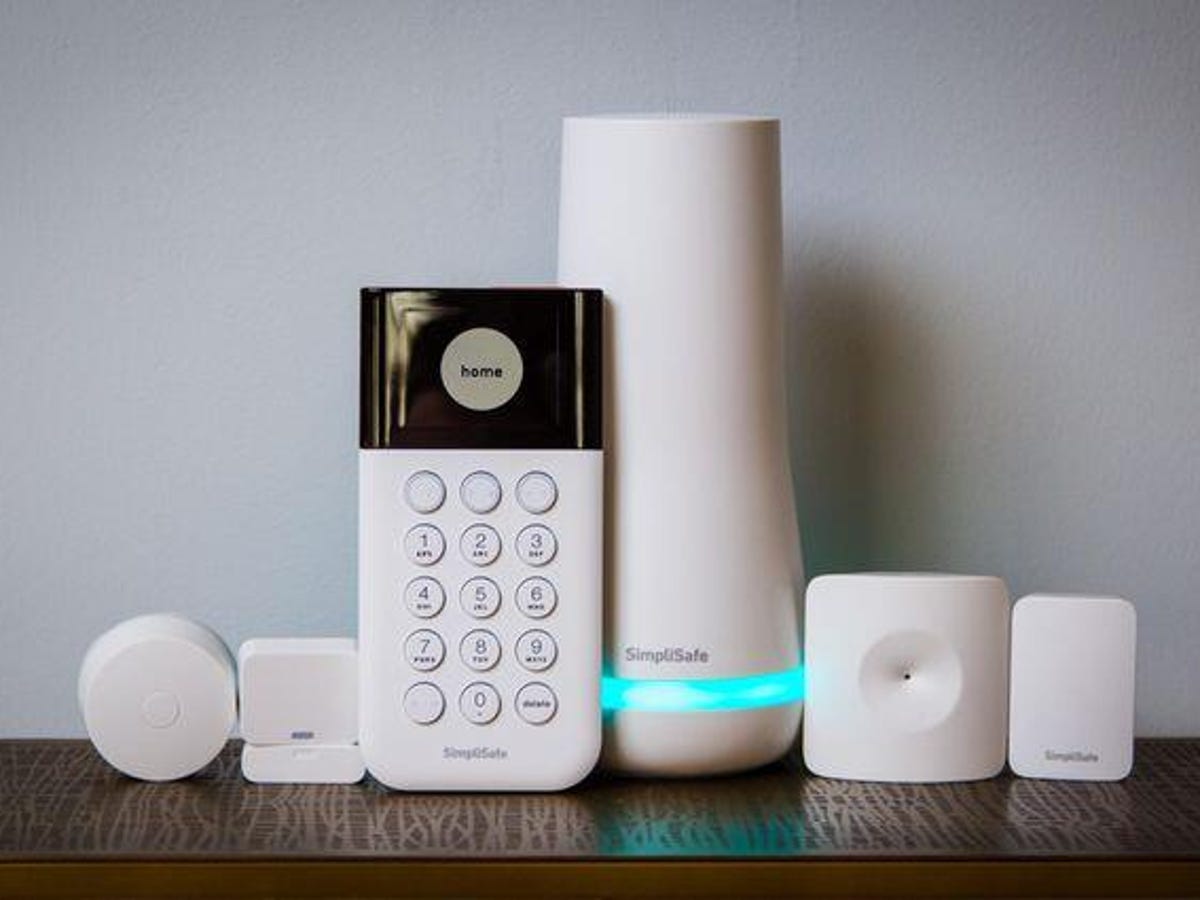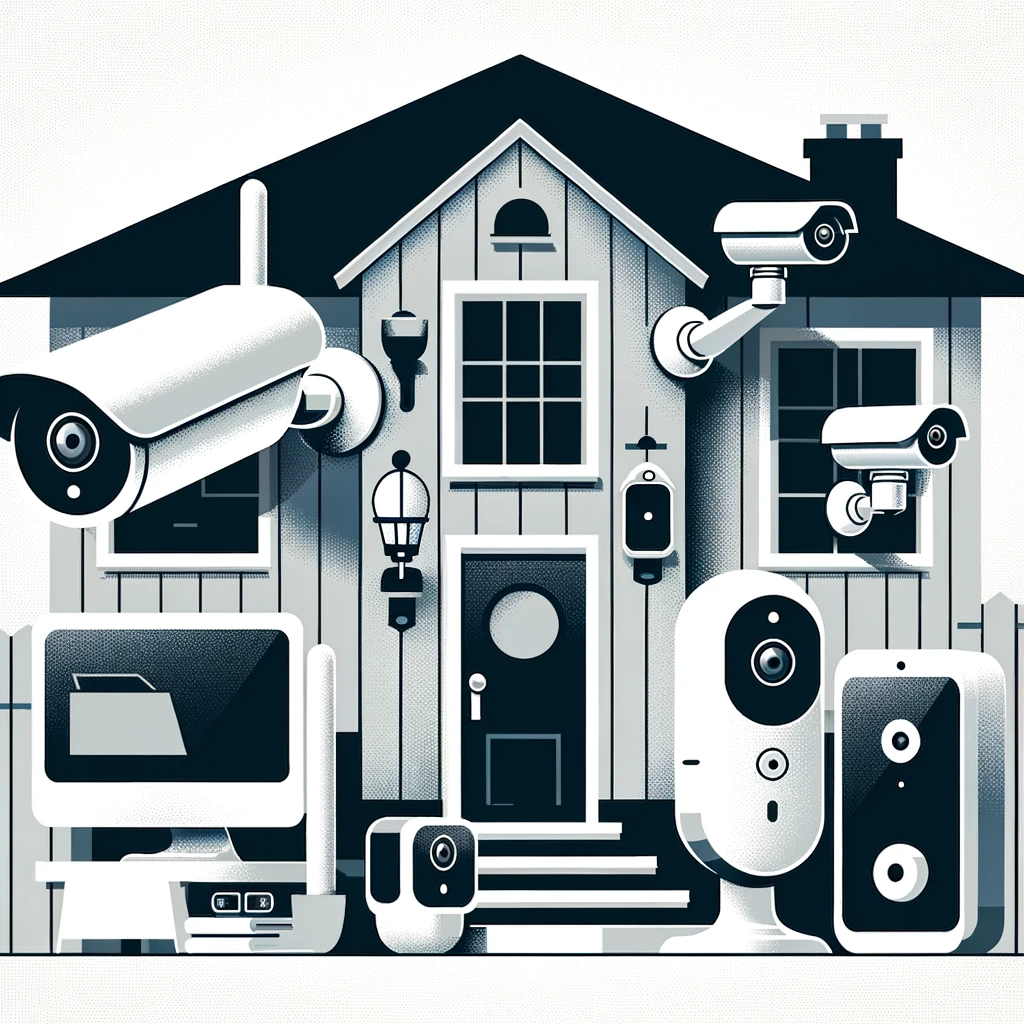How to Choose the Right Security System for Your Home: A Comprehensive Guide


Introduction
When it comes to the safety and security of your home or business, choosing the right security system is paramount. With the numerous options available in the market, it can be overwhelming to make the right decision. However, taking the time to understand the importance of choosing the right security system will help you make an informed choice that meets your specific needs.
Understanding the importance of choosing the right security system
-
Customized Protection: Each property is unique, and therefore, a one-size-fits-all security solution may not be effective. By choosing the right security system, you can ensure that it is tailored to address the specific vulnerabilities and risks of your property.
-
Peace of Mind: Having a reliable and effective security system gives you peace of mind, knowing that your property is protected. Whether you are at home or away, you can rest assured that your security system is working tirelessly to deter potential threats and provide early warnings.
-
Crime Prevention and Deterrence: A visible security system acts as a deterrent, making your property less attractive to potential criminals. Research has shown that homes and businesses with security systems are less likely to be targeted by burglars or vandals.
-
Immediate Response: Advanced security systems are equipped with alarm monitoring services that provide immediate response in case of an emergency. This ensures that the appropriate authorities are notified promptly, increasing the chances of a swift resolution to any security incident.
-
Insurance Benefits: Many insurance companies offer discounts on premiums for properties with installed security systems. By choosing the right system, you not only protect your property but also save money in the long run.
-
Remote Monitoring: With technological advancements, modern security systems allow for remote monitoring through smartphones and other connected devices. This enables you to keep an eye on your property and receive real-time notifications, offering an additional layer of security and convenience.
By understanding the importance of choosing the right security system, you can make an informed decision that best meets your needs. Take the time to evaluate your property, research the available options, and consult with security professionals to ensure that you select the system that provides optimal protection and peace of mind.

Assess Your Security Needs
When it comes to choosing the right security system for your home or business, it is important to take the time to assess your specific security needs. This will ensure that you select a system that provides the level of protection you require. Here are some key points to consider:
Determining the specific security requirements for your home or business
-
Identify Vulnerable Areas: Start by identifying the vulnerable areas in your home or business premises. Assess which areas are most susceptible to burglaries or security breaches.
-
Consider Your Location: Your location plays a significant role in determining your security needs. If you live in a high-crime area or run a business in a high-risk industry, you may need more advanced security features such as surveillance cameras or access control systems.
-
Assess the Value of Your Assets: Consider the value of the assets you want to protect. Determine whether you need additional measures such as safes or alarms to safeguard valuable possessions or sensitive information.
-
Evaluate Potential Risks: Evaluate potential risks specific to your situation. For example, if you live in an area prone to natural disasters, you may want to invest in a security system that includes smoke detectors or flood sensors.
-
Consider Monitoring Options: Decide whether you want to invest in a system that includes professional monitoring or opt for a self-monitoring solution. Professional monitoring provides an added layer of security as it ensures that authorities are alerted in case of an emergency.
-
Think About Scalability: If you anticipate the need for future expansion or upgrades, consider a security system that is scalable and allows for easy integration of additional features or devices.
By taking the time to assess your security needs, you can make an informed decision when selecting the right security system. Remember, the key is to choose a system that provides the level of protection necessary to keep your home or business secure.

Types of Security Systems
Exploring different types of security systems available in the market:
When it comes to choosing the right security system for your home or business, the options can be overwhelming. To help you make an informed decision, let's explore some of the different types of security systems available in the market.
Burglar Alarms
-
Basic burglar alarms
Basic burglar alarms are a popular choice for many homeowners. They typically consist of door and window sensors, motion detectors, and a control panel. When a sensor detects a breach, it triggers an alarm to alert you and potentially scare off intruders.
-
Wireless burglar alarms
Wireless burglar alarms offer the same functionality as basic burglar alarms but without the need for wires. They are easy to install and can be controlled remotely using a smartphone app. This type of system is ideal for renters or those who don't want to deal with the hassle of running wires throughout their property.
Surveillance Cameras
-
Outdoor surveillance cameras
Outdoor surveillance cameras are designed to monitor the exterior of your property. They can capture high-quality video footage and often come with features like night vision and motion detection. These cameras act as a deterrent, as potential intruders are less likely to target a property with visible security cameras.
-
Indoor surveillance cameras
Indoor surveillance cameras are used to monitor the inside of your home or business. They can be placed in key areas such as entryways, hallways, or rooms with valuable belongings. Indoor cameras can help you keep an eye on your property when you're away and provide evidence in case of a break-in or other incidents.
Access Control Systems
-
Biometric access control systems
Biometric access control systems use unique physical traits, such as fingerprints or retinal scans, to grant access. This type of system offers enhanced security as it is nearly impossible to duplicate someone's biometric information.
-
Keycard access control systems
Keycard access control systems require users to present a physical card or key fob to gain entry. These systems are commonly used in office buildings or apartment complexes where multiple individuals need controlled access.
Remember, when choosing a security system, consider your specific needs, budget, and the level of security required. It's also a good idea to consult with a professional security provider who can assess your property and recommend the best system for you. With the right security system in place, you can have peace of mind knowing your property and loved ones are

Features to Consider
Key features to look for when choosing a security system:
Motion Detection
When it comes to choosing the right security system, one of the key features to consider is motion detection. This feature allows the system to detect any movement or activity within the designated area. With motion detection, you can receive instant notifications on your smartphone or email when the system detects any suspicious activity. This helps you stay informed and take immediate action if needed.
Remote Monitoring
Remote monitoring is another crucial feature to look for in a security system. This allows you to access live video feeds and control your security system from anywhere using your smartphone or computer. With remote monitoring, you can keep an eye on your property even when you're not physically present, providing you with peace of mind.
Smartphone Integration
Smartphone integration is becoming increasingly important in security systems. With smartphone integration, you can control and monitor your security system through a dedicated mobile app. This allows for ease of use and convenience, as you can arm or disarm your system, receive notifications, and view live video feeds all from your smartphone.
Video Quality
When choosing a security system, make sure to consider the video quality. Look for systems that offer high-resolution video and clear imaging. This will ensure that you can capture details accurately and easily identify any suspicious activity or individuals.
Night Vision
Night vision is a critical feature to consider, especially if you want around-the-clock surveillance. Look for security systems that have built-in infrared sensors, allowing them to capture clear video footage even in low-light or total darkness conditions. This ensures that your property remains protected at all times.
Two-Way Audio
Two-way audio is an additional feature that can be beneficial in a security system. It allows you to communicate with individuals on the other end of the camera through a built-in microphone and speaker. This feature can be useful for remote monitoring, allowing you to deter potential intruders or communicate with visitors.
Remember to consider these key features when choosing the right security system for your needs. Each feature plays a crucial role in ensuring the safety and protection of your property.

Making the Final Decision
Factors to consider before making a final decision on the right security system for your needs
So, you've done your research, gathered information, and now it's time to make the final decision on the right security system for your needs. Don't worry, we're here to help you navigate through this process smoothly. Here are some essential factors to consider before making your final choice:
-
Your Specific Security Needs: Start by assessing your unique security requirements. Do you need surveillance cameras, motion sensors, or an alarm system? Identify the areas of your property that need protection and prioritize the features that align with your needs.
-
Reliability and Reputation: Look for a reputable security system provider known for delivering reliable solutions. Check customer reviews and ratings to get an idea of their track record in terms of performance, customer service, and reliability.
-
Scalability and Future Needs: Consider your future plans and whether the security system you choose can be easily expanded or upgraded. It's important to choose a system that can adapt to your evolving needs without requiring a complete overhaul.
-
Integration and Compatibility: If you already have existing security devices or home automation systems, make sure the security system you choose is compatible with them. Integration between different systems can enhance functionality and convenience.
-
Monitoring Options: Decide whether you want a self-monitoring system or a professionally monitored one. Self-monitoring gives you the flexibility to monitor your property yourself, while professional monitoring provides 24/7 surveillance and immediate response in case of an emergency.
-
Cost and Budget: Determine your budget and find a security system that offers the features you need within your price range. Compare prices, features, and subscription fees to ensure you are getting the best value for your money.
-
Customer Support: Consider the level of customer support provided by the security system provider. Look for companies that offer responsive customer service, technical support, and assistance in system setup and troubleshooting.
Taking these factors into account will help you make an informed decision when choosing the right security system for your needs. Remember, investing in a reliable and efficient security system will give you peace



